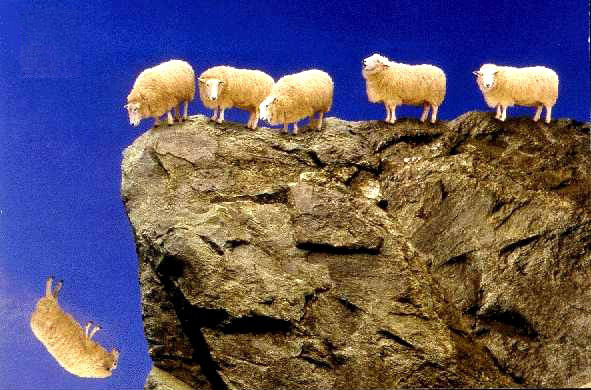Wednesday, January 13, 2010
Tuesday, January 12, 2010
Letter to Hillary Clinton
Secretary of State Hillary Clinton
US Department of State
2201 C Street NW
Washington, DC 20520
Dear Madam Secretary,
I am writing to convey my concern for the issue of current whaling practices in Japan. As you are probably aware, the Japanese government is using Article VIII of the International Convention For The Regulation Of Whaling, permitting them to treat, take, or kill whales for purposes of scientific research. This has allowed for their continued involvement in commercial whaling, even with the moratorium that has been in place since 1986. In any case, many people believe that the research Japan is conducting is invalid, and deliberately misusing science. This is due to the fact that thousands of tons of whale meat is being packaged and sold in Japan, and because almost all of their "research," could be attained by non-lethal means. As a keystone species, whales impact the marine ecosystem much more than the average animal. With their dwindling numbers, and Japan pushing certain species closer to extinction, sea animals are already experiencing mass environmental imbalance and the problem is only becoming more severe. With some whale populations at less than one percent of their original numbers, who knows how long it will take for an entire marine ecosystems to collapse. The actions of just one county are creating a huge irreversible problem for the rest of the world, by depleting our resources, and creating havoc in the food chain. For over 20 years Japan has been abusing science, and whaling under a technicality. If the governments of other nations, and the laws currently in place have not changed Japan's actions, the laws need to be tightened. There can be no space for interpretation of what determines "valid" research; the law should ban the killing of whales for all purposes. Because most research on whales can be done non-lethally, there needs to be a law stating that the killing of whales is in no way permitted, for research or any other means. Japan would then be forced to either comply, or face consequences for blatantly breaking the law. I realize that you recently met with Japanese officials, and I hope that you are able to voice these concerns in your next correspondence.
Sincerely,
Eli Arata-Reshes
14372 Lyons Valley Road
Jamul Ca, 91935
US Department of State
2201 C Street NW
Washington, DC 20520
Dear Madam Secretary,
I am writing to convey my concern for the issue of current whaling practices in Japan. As you are probably aware, the Japanese government is using Article VIII of the International Convention For The Regulation Of Whaling, permitting them to treat, take, or kill whales for purposes of scientific research. This has allowed for their continued involvement in commercial whaling, even with the moratorium that has been in place since 1986. In any case, many people believe that the research Japan is conducting is invalid, and deliberately misusing science. This is due to the fact that thousands of tons of whale meat is being packaged and sold in Japan, and because almost all of their "research," could be attained by non-lethal means. As a keystone species, whales impact the marine ecosystem much more than the average animal. With their dwindling numbers, and Japan pushing certain species closer to extinction, sea animals are already experiencing mass environmental imbalance and the problem is only becoming more severe. With some whale populations at less than one percent of their original numbers, who knows how long it will take for an entire marine ecosystems to collapse. The actions of just one county are creating a huge irreversible problem for the rest of the world, by depleting our resources, and creating havoc in the food chain. For over 20 years Japan has been abusing science, and whaling under a technicality. If the governments of other nations, and the laws currently in place have not changed Japan's actions, the laws need to be tightened. There can be no space for interpretation of what determines "valid" research; the law should ban the killing of whales for all purposes. Because most research on whales can be done non-lethally, there needs to be a law stating that the killing of whales is in no way permitted, for research or any other means. Japan would then be forced to either comply, or face consequences for blatantly breaking the law. I realize that you recently met with Japanese officials, and I hope that you are able to voice these concerns in your next correspondence.
Sincerely,
Eli Arata-Reshes
14372 Lyons Valley Road
Jamul Ca, 91935
Saturday, January 9, 2010
Government Democracy in Action Project
This is my PSA which depicts the current situation with Japanese whaling and indicates what you can do to help.
Wednesday, December 16, 2009
Abstract

For many centuries Japan has hunted whales as a means of getting food. In the past many other countries have also been involved in whaling, and it wasn't until a few decades ago that the global public decided that whaling could not continue for fear of eliminating certain species. In 1986 the IWC, International Whaling Commission put a ban on all commercial whaling, and since then all but a few select countries ceased their whaling practices. Japan is a country that has blatantly disregarded all laws that protect endangered species, and other marine animal preservation acts, and continued to kill whales despite their dwindling numbers. Unfortunately the international community is unable to change this because the Japanese are claiming that all the whales they kill are being used for scientific purposes. Japan is operating under a technicality because the IWC's ban allows for whaling as long as it is for scientific research. To truly solve this problem laws need to be tightened. There can be no space for interpretation of what determines "valid" research, the law should ban the killing of whales for all purposes. Any research that needs to be done should be conducted by non-lethal means. If action is not taken and this resource continues to be mismanaged, many species of whales will become extinct, and the earth’s natural ecosystem will face a mass amount of distress and imbalance.
Thursday, November 12, 2009
Vocab Set #2

deduct- Deduct, as it is used in deductive reasoning, means to infer, or deduce something. Such as somebody looking at dark clouds, they may deduce that it is going to rain. This picture of the guy having an idea shows that he has observed, and deduced something from what he saw. Deduce also means to subtract from, or to takeaway from. An example would be a car that has been in an accident may deduct from the total value.
 reciprocate- The word reciprocate means to give and take mutually, or return. It can be inferred that in this picture there are two people in love who obviously reciprocate feelings for each other. Because they share feelings of caring for one another, they are returning and receiving each other's emotions.
reciprocate- The word reciprocate means to give and take mutually, or return. It can be inferred that in this picture there are two people in love who obviously reciprocate feelings for each other. Because they share feelings of caring for one another, they are returning and receiving each other's emotions. empathy- This word means to understand, share, and be sensitive to the thoughts and feelings of another person or thing. Almost like feeling another person's pain with them. It goes further than just feeling sorry for them, it shows that you also share their burden. This picture shows two people who seem to be experiencing the same emotion, one of them is being empathetic to the other.
empathy- This word means to understand, share, and be sensitive to the thoughts and feelings of another person or thing. Almost like feeling another person's pain with them. It goes further than just feeling sorry for them, it shows that you also share their burden. This picture shows two people who seem to be experiencing the same emotion, one of them is being empathetic to the other.
incognito- This word means to conceal one's identity, or to go without notice. Kind of like being undercover. This picture of a mask keeps the wearer unexposed, and their identity hidden, therefore they are incognito. Another example of this could be the stick insect, or leaf insect, which disguise themselves to look differently to fool predators.
 precipitous-This word means very steep, or perpendicular, or overhanging rise and fall. The cliff in the picture could be described as precipitous, because of its steepness, and abrupt fall. You could also use precipitous to describe a slope, or a gorge, or something with sheer sides.
precipitous-This word means very steep, or perpendicular, or overhanging rise and fall. The cliff in the picture could be described as precipitous, because of its steepness, and abrupt fall. You could also use precipitous to describe a slope, or a gorge, or something with sheer sides.
Tuesday, November 3, 2009
Vocab Set #1
VOCAB HONORS
flourish - to brandish dramatically; a decoration or embellishment, to be in a vigorous state. to thrive.
"During the agricultural revolution the productivity of crops flourished, and crop yield reached amazing heights."
tempo- Tempo is a characteristic rate, rhythm,
or pattern of work or activity. To have a song with
a fast tempo means that the beat is fast. This
picture of Travis Barker drumming relates to tempo,
because he keeps the rhythm, rate, and tempo of the music.
 tranquility -quality or state of being tranquil; calmness; peacefulness; quiet; serenity.
tranquility -quality or state of being tranquil; calmness; peacefulness; quiet; serenity.
This picture of a buddhist monk meditating
in the middle of the mountains, away from all the stress
of the city, shows his tranquility and inner peace. Meditation in itself
is all about clearing your mind, and being able to find your
own tranquility, not just from outside influence, but from yourself.
 tumult -violent and noisy commotion or
tumult -violent and noisy commotion or
disturbance of a crowd or mob; uproar
This photo of a rowdy class is an example of
tumult. All the students are distracted, making loud
noises, and in uproar. (Much like students tend to
act when their teacher is not there).
 tundra -one of the vast, nearly level, treeless plains of the arctic regions of Europe, Asia, and North America.
tundra -one of the vast, nearly level, treeless plains of the arctic regions of Europe, Asia, and North America.
This photo is a depiction of the vast tundra in North America. The plants are all extremely adapted to living in
cold places with less sunlight. The animals that inhabit the tundra also have specific traits that allow them to survive in the cold plains.
 unanimous -
unanimous -
flourish - to brandish dramatically; a decoration or embellishment, to be in a vigorous state. to thrive.
"During the agricultural revolution the productivity of crops flourished, and crop yield reached amazing heights."
guerilla - a member of a band of irregular soldiers that uses guerrilla warfare, harassing the enemy by surprise raids, sabotaging communication and supply lines, etc.
"To win the war, the United States had to resort to using Guerilla tactics against the enemy."
"To win the war, the United States had to resort to using Guerilla tactics against the enemy."
renegade -
| 1. | a person who deserts a party or cause for another. |
| 2. | an apostate from a religious faith. of or like a renegade; traitorous. |
"He was known as a renegade because of his lack of respect for the law."
repose -
"After the math final, his face was in a state of repose, the stress of the last few weeks gone."
repose -
| 1. | the state of reposing or being at rest; rest; sleep. |
| 2. | peace; tranquillity; calm. |
stereotype - to characterize or regard as a stereotype
"Because of his angry behavior everyday at school, he has been stereotyped as unhappy.
"Because of his angry behavior everyday at school, he has been stereotyped as unhappy.
symbiosis - the living together of two dissimilar organisms, as in mutualism, commensalism, amensalism, or parasitism.
"The shark and the remora lived in symbiosis, each helping the other."
"The shark and the remora lived in symbiosis, each helping the other."
tariff -bill; cost; charge.
"China was unhappy about the newly imposed tariffs on their goods, because less Americans wanted to get their imports."
"China was unhappy about the newly imposed tariffs on their goods, because less Americans wanted to get their imports."
tempo- Tempo is a characteristic rate, rhythm,
or pattern of work or activity. To have a song with
a fast tempo means that the beat is fast. This
picture of Travis Barker drumming relates to tempo,
because he keeps the rhythm, rate, and tempo of the music.
 tranquility -quality or state of being tranquil; calmness; peacefulness; quiet; serenity.
tranquility -quality or state of being tranquil; calmness; peacefulness; quiet; serenity.This picture of a buddhist monk meditating
in the middle of the mountains, away from all the stress
of the city, shows his tranquility and inner peace. Meditation in itself
is all about clearing your mind, and being able to find your
own tranquility, not just from outside influence, but from yourself.
 tumult -violent and noisy commotion or
tumult -violent and noisy commotion ordisturbance of a crowd or mob; uproar
This photo of a rowdy class is an example of
tumult. All the students are distracted, making loud
noises, and in uproar. (Much like students tend to
act when their teacher is not there).
 tundra -one of the vast, nearly level, treeless plains of the arctic regions of Europe, Asia, and North America.
tundra -one of the vast, nearly level, treeless plains of the arctic regions of Europe, Asia, and North America.This photo is a depiction of the vast tundra in North America. The plants are all extremely adapted to living in
cold places with less sunlight. The animals that inhabit the tundra also have specific traits that allow them to survive in the cold plains.
 unanimous -
unanimous -| 1. | of one mind; in complete agreement; agreed. |
| 2. | characterized by or showing complete agreement: a unanimous vote. This picture is of the U.S. Congress. They have to consider many sides of every argument, and are able to speed up the decision making process by unanimous consent, meaning when everyone is in agreement. |
Monday, November 2, 2009
Response to Michael Pollen's "In Defense of Food."
Why do people eat unhealthy?
Mostly just because it is easier, faster, cheaper, it may taste better in some cases rather than healthier food, and because it is familiar, and sold in more places so it is more accessible.
What should the government be doing about Genetically Modified food?
I don't think that the government holds any role in education, or "telling" us what to eat. We should have the choice to eat what we want, healthy or not, educated or uneducated. The only role that the government plays, is ensuring that the people have access to all foods, healthy/organic, and unhealthy/processed foods.
Mostly just because it is easier, faster, cheaper, it may taste better in some cases rather than healthier food, and because it is familiar, and sold in more places so it is more accessible.
What should the government be doing about Genetically Modified food?
I don't think that the government holds any role in education, or "telling" us what to eat. We should have the choice to eat what we want, healthy or not, educated or uneducated. The only role that the government plays, is ensuring that the people have access to all foods, healthy/organic, and unhealthy/processed foods.
Subscribe to:
Comments (Atom)
